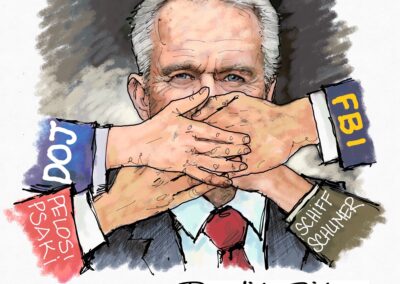OPINION
Just in time for the 2024 election campaigns, Facebook, in a recent policy shift, has implemented measures that severely limit the ability of individuals to send friend requests. This action, while seemingly innocuous on the surface, has profound implications. It effectively curtails the natural growth of grassroots movements, hindering their ability to network, to spread their message and to mobilize for the vital causes they champion.
This tactic by Facebook, whether by design or consequence, is reminiscent of the subtle mechanisms of control that have historically been employed to suppress dissenting voices and impede progress. In an era where digital platforms are the new public squares, such actions take on a deeply undemocratic character, stifling the free exchange of ideas and the organic growth of movements that challenge the status quo.
The Unseen Battle in Our Digital Commons
As we stand at a crucial juncture in the fight for truth and justice, the recent actions of Facebook, a supposed facilitator of free speech and assembly, have raised alarm. Their decision to stop friend requests impacts the ability of grassroots supporters to connect and organize. This is more than a policy shift – it’s a barrier to the very essence of democratic engagement we strive for. It reflects a concerning trend of corporate entities wielding undue influence over our collective ability to mobilize for change.
The Invisible Hand of Control
In this digital age, where the internet serves as our town square, the invisible hand of algorithms – those complex formulas dictating our online interactions – are shaping our movement in ways unseen but deeply felt. It’s a digital manifestation of the systemic hurdles we’ve historically faced, a silent yet powerful force that can either foster or hinder the growth of grassroots movements.
Upholding the Spirit of the First Amendment
This situation goes beyond the specifics of any one platform or policy. It touches the core of our First Amendment rights. The ability to assemble, to connect, to share ideas freely – these are not just constitutional rights but are fundamental to the health and progress of any democracy. When a platform like Facebook imposes limitations that disproportionately affect certain groups, it’s not only a corporate overreach but a challenge to these fundamental rights.
Challenging the Status Quo
The essence of our struggle has always been to challenge the status quo, to give voice to the unheard, and to break down barriers to justice. As Glenn Greenwald aptly pointed out, the true measure of a free society is how it treats its dissenters. Today, this struggle extends to the digital realm, where platforms like Facebook have become the gatekeepers of public discourse.
A Call for Openness and Equity in the Digital Space
What we need now is a push for greater transparency and equity in how these digital platforms operate. The algorithms that control our online experience must be made accountable to the public they serve. We must ensure that the digital space remains a place for open discourse, where movements for change can grow without undue hindrance.
A Fight for Our Digital Rights
In closing, the challenges faced by Kennedy’s supporters on Facebook are indicative of a larger fight – a fight for our digital rights. It is a battle against the monopolization of digital spaces by corporate interests, a fight to ensure that our online world remains a fertile ground for democracy and truth. A company like Facebook – which often refuses to find time to rectify accounts that get hacked (accounts which are then used to scam friends of hacked users) – can find time to abridge free assembly. Let’s stand together in this fight, ensuring that our voices are heard and that our movements can flourish in this new digital age.



Great article! I notice that the algorithms are in strict alignment against any of my posts about RFK, Jr. being seen by any of my friends except those who have been in Facebook jail before.